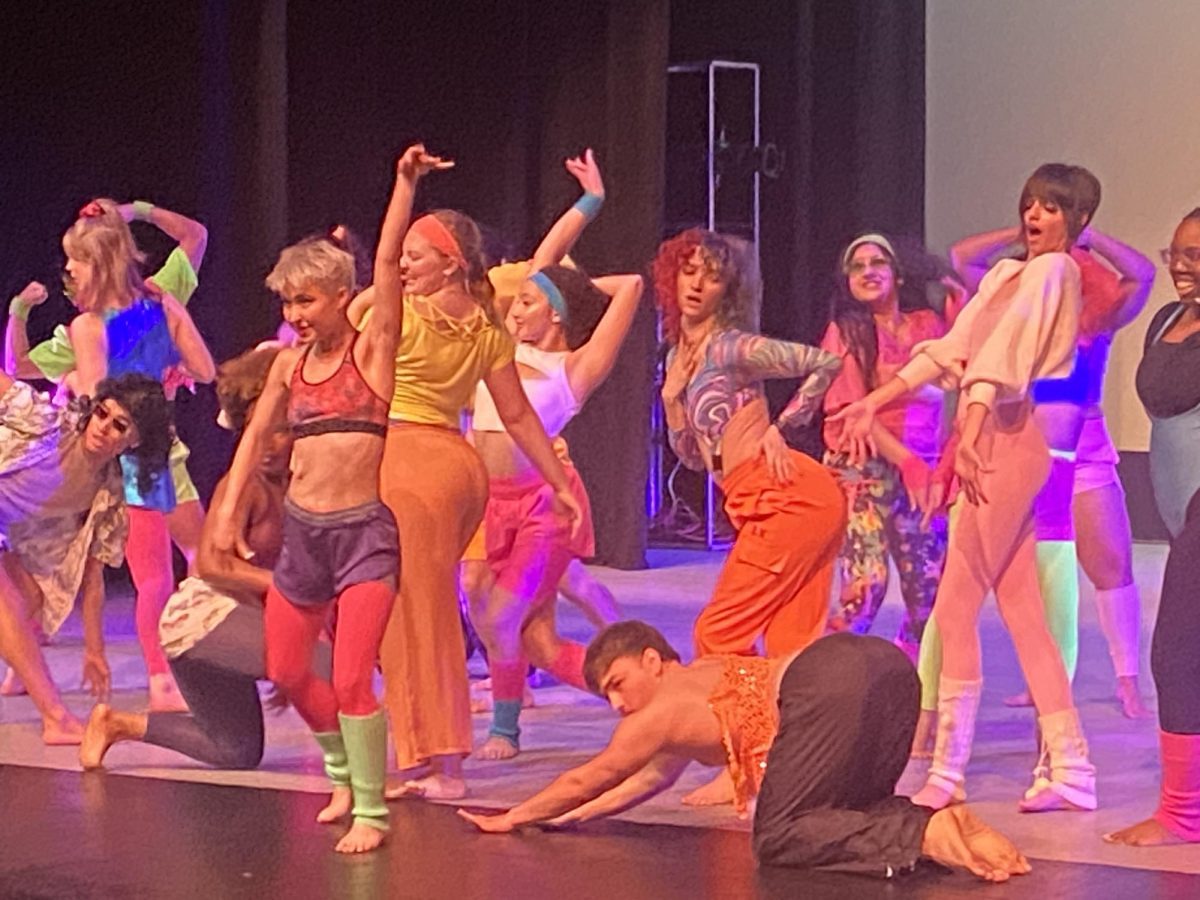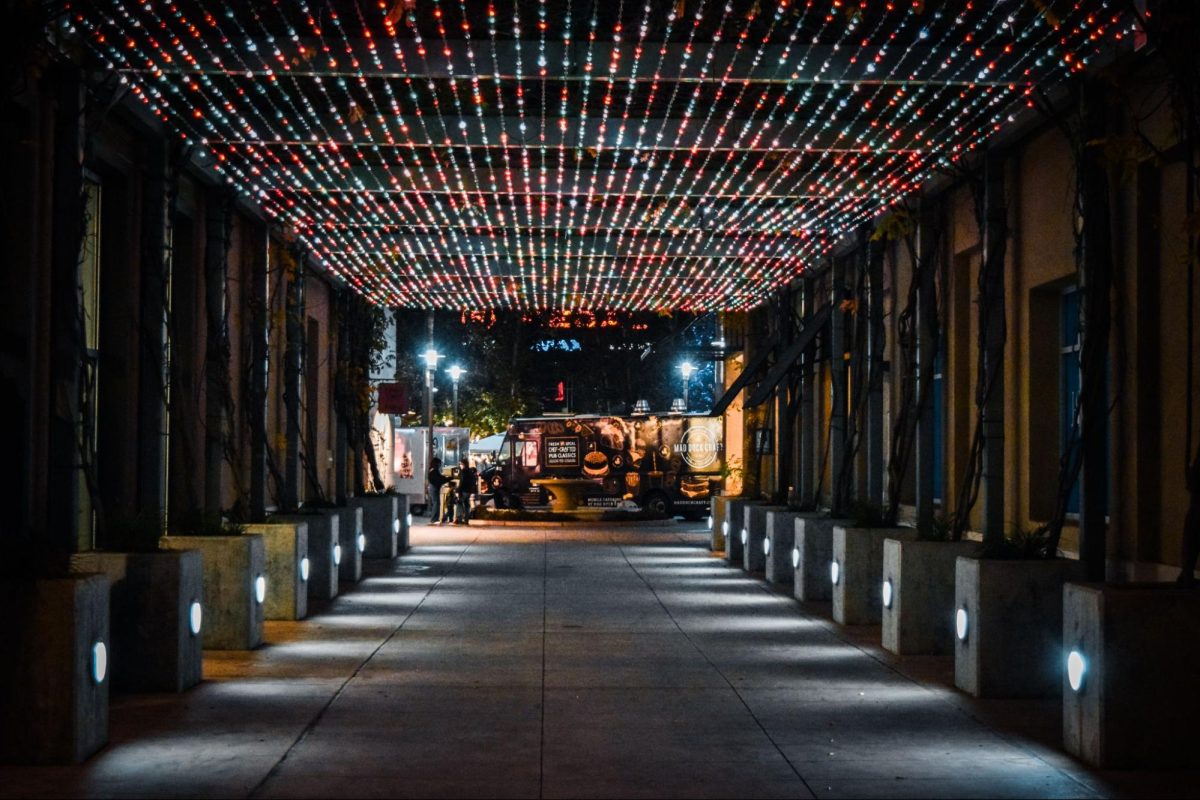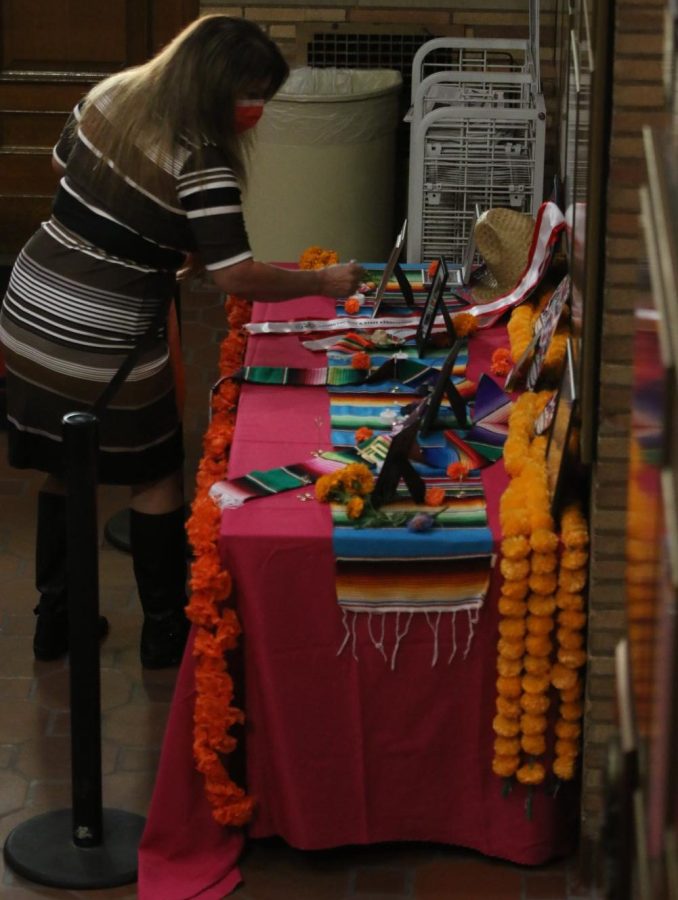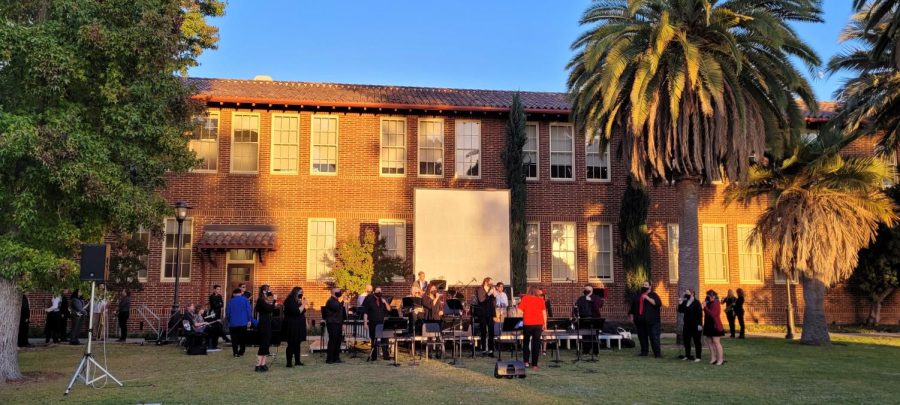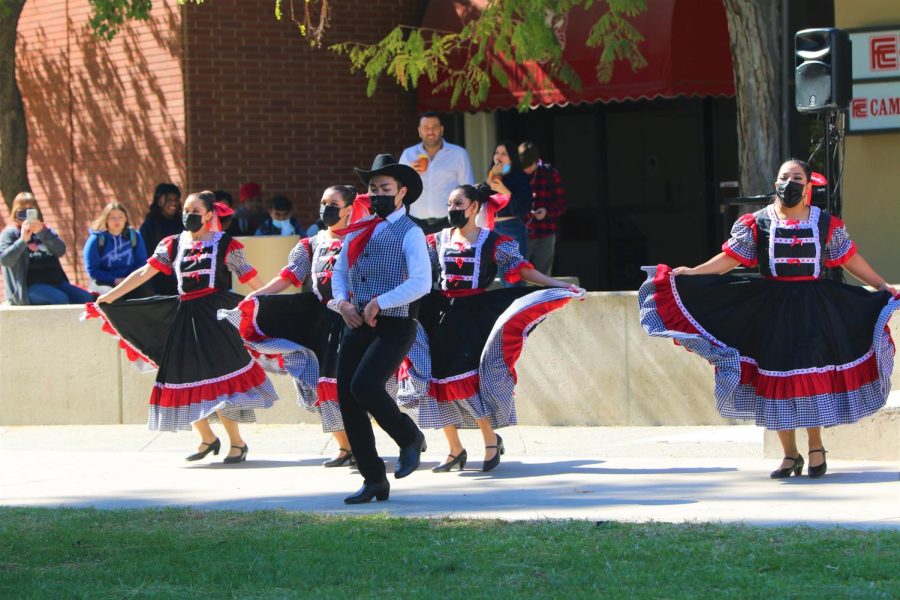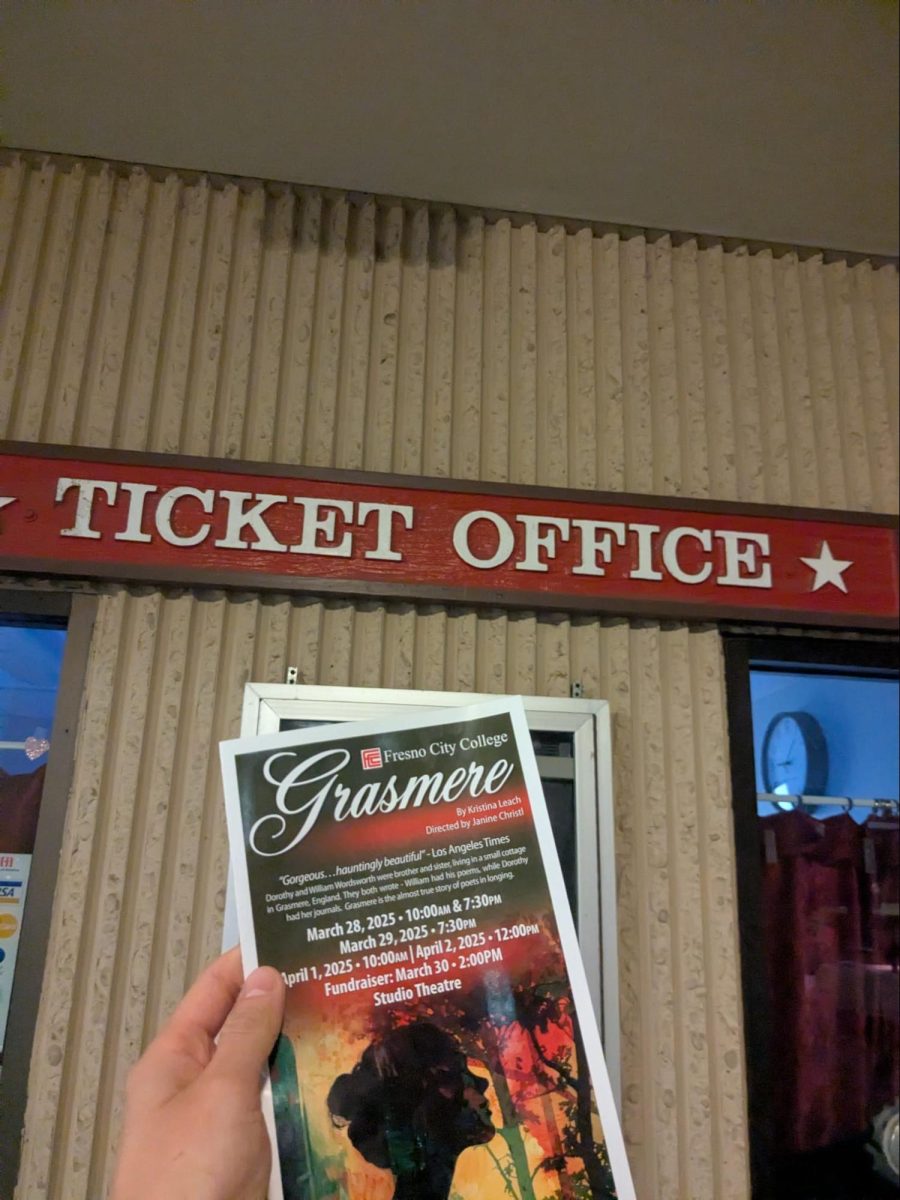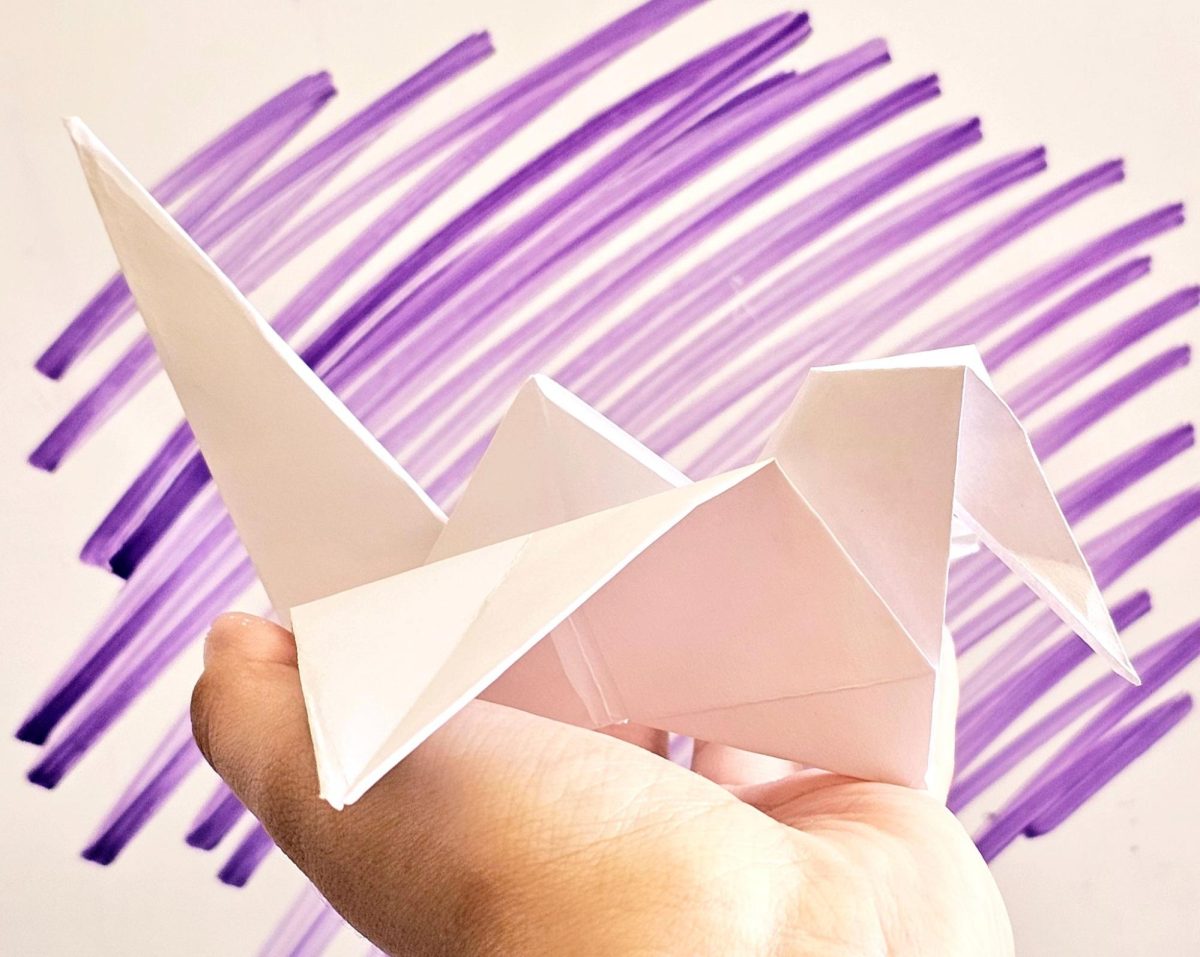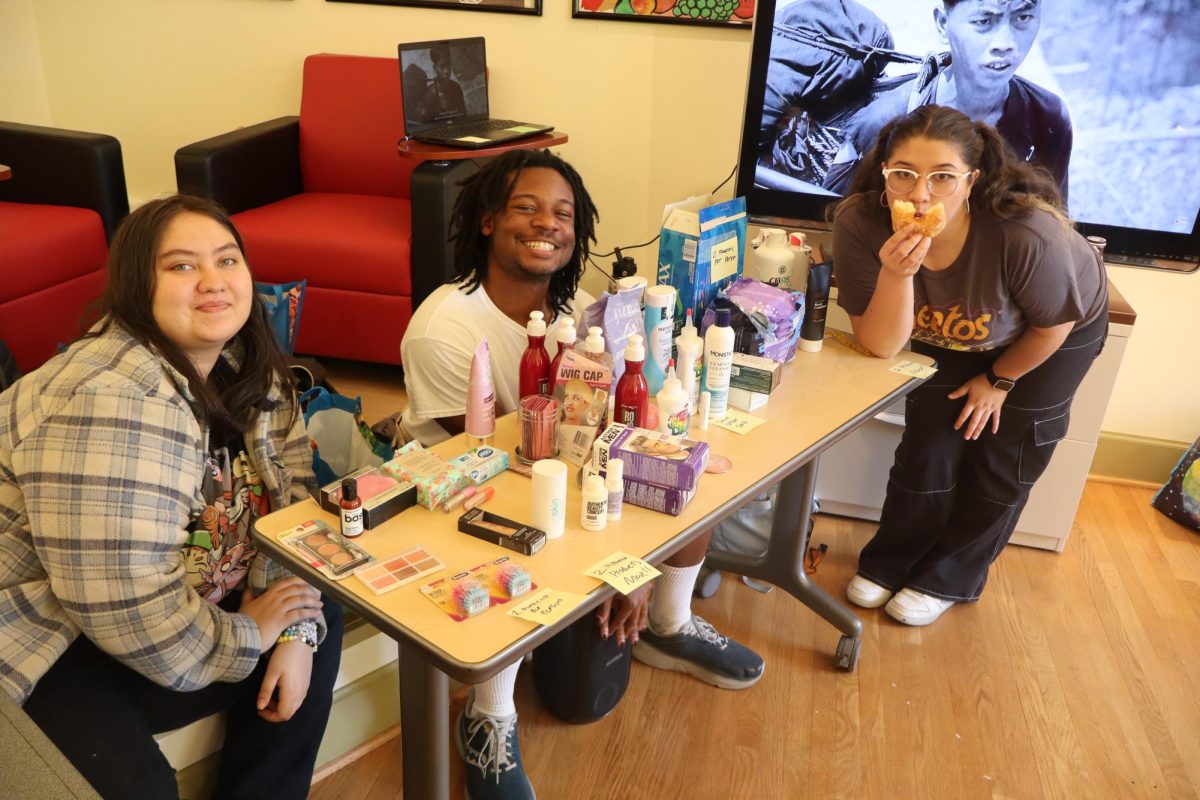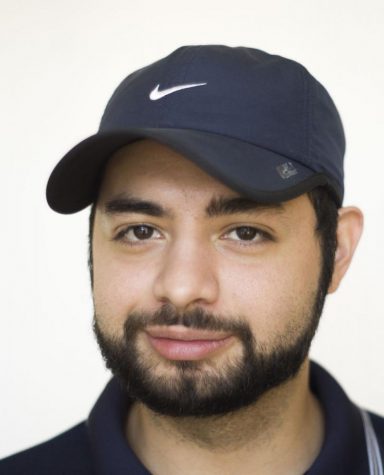In the world of art, there are always new techniques and styles that come in and out of popularity. There are artists pushing the limits and creating new ideas that progress this medium of expression.
Progression, development, and change; these universal themes are what inspire the life and work of Fresno City College custodian and local artist, Alvin T. Greathouse.
In 1959, Edward Greathouse was living in Fresno and was part of a local youth club that would host gatherings for the young people of the community. It was there that he met a young woman from Madera. Her name was Juanita and Edward fell in love with her. A year later they bore a son named Alvin.
Alvin Terrell Greathouse was born in Fresno on Aug. 30 1960. His father worked as a truck driver and his mother was an educator for the head start program. He had two younger brothers, Stephen and Rod, and a younger sister named Kim.
He describes growing up with his family in Fresno during the 1960s as very calm and safe.
“My memories of growing up here were pretty cool. It had an Andy Griffin type of thing and everyone was laid back,” says Greathouse.
Greathouse started drawing at the age of seven. His uncle, Vernon, was an artist. He gave Greathouse a book of caricatures of Hollywood celebrities such as Dean Martin and Bing Crosby and told him to “practice, practice, practice.”
As he took art appreciation classes in high school, Greathouse discovered famous artists and art styles. One of his art teachers during high school, Mr. Bingham, strongly encouraged Greathouse to pursue his artwork.
Growing up, there were many sources of inspiration for Greathouse to draw from. America was exploring the depths of the universe with the space program and a ground-breaking science fiction television program named Star Trek had just premiered. His mother had a love for science fiction which she passed on to Greathouse.
“Everybody else in class at the time was drawing gangsta cars; it was the pimp daddy thing,” said Greathouse. “I was drawing spaceships, space stations, and robots, and that really appealed to him [Bingham]. He said, ‘Your work is so clean. As soon as the pen is to the paper, you know where you’re going.’”
As a high school student in the late 1970s, Greathouse enjoyed the nostalgia of the high school football games, the trusting teachers, and the volunteerism that people of his generation partook in. Now, Greathouse recognizes how different things have become.
“The world needs to slow down and just take a look at itself,” says Greathouse. “People keep talking about the problems and they act like the problems aren’t created by us. We create the problems, so we can solve them.”
Greathouse graduated from Edison High School in 1978 and joined the army just days after his graduation ceremony. He was a cook in the army for eight years and was stationed in Germany for seven years.
“The army was a blast, but you can say stuff like that after the fact,” said Greathouse. His career with the army enabled him to meet many interesting people and visit different countries.
After finishing his stint in the army, Greathouse went to Los Angeles and was offered a job with an animation company. DiC Entertainment, the animation studio that made such cartoons as “Inspector Gadget,” “Captain Planet and the Planeteers,” and “Teenage Mutant Ninja Turtles,” offered him a job as a background artist.
His wife of the time did not feel that the job of a background artist would prove to be stable. And so, Greathouse came back to Fresno to work as a chef.
Even as Greathouse was working as a chef, he still had great ambitions to one day be a famous artist.
Greathouse had gone to culinary school and had numerous jobs as a chef. He worked at a number of different restaurants and was working for the California prison system for a time. In the year 2000, while working at a Perko’s, Greathouse began to feel burnt out from cooking and desperately wanted to pursue his artistic ambitions.
He got a job with the district and became the food manager of the cafeteria at FCC in 2001. He worked at FCC for a year before being laid off. He was told that he would have to re-apply if he wanted his job back. After working as a janitor at Reedley College for a year, he returned to FCC where he has since been working as a janitor.
Throughout his journey, he has never given up on his art. Greathouse does all of his works by hand and uses nothing but pens, pencils, markers, and highlighters.
“Art needs to be experienced,” says Greathouse. “When a person looks at one of my pictures I want them to feel some type of motion. A person walks away from one of my pictures, and I want them to feel good.”
As of now, Greathouse is trying to get his work out there the old fashioned way. He wants to get his work inside of galleries and different art venues, and wants his popularity to spread through word of mouth.
As there is progression, there is going to be change, and Greathouse likes to slow down and observe his place in the universe.
“The world is going so fast and they are always talking about staying ahead. Staying ahead of what? This is your life, what are you going to get ahead of?” says Greathouse. “Like my friend Bugs Bunny said, ‘Don’t take life so serious, you’ll never get out of it alive.’”

